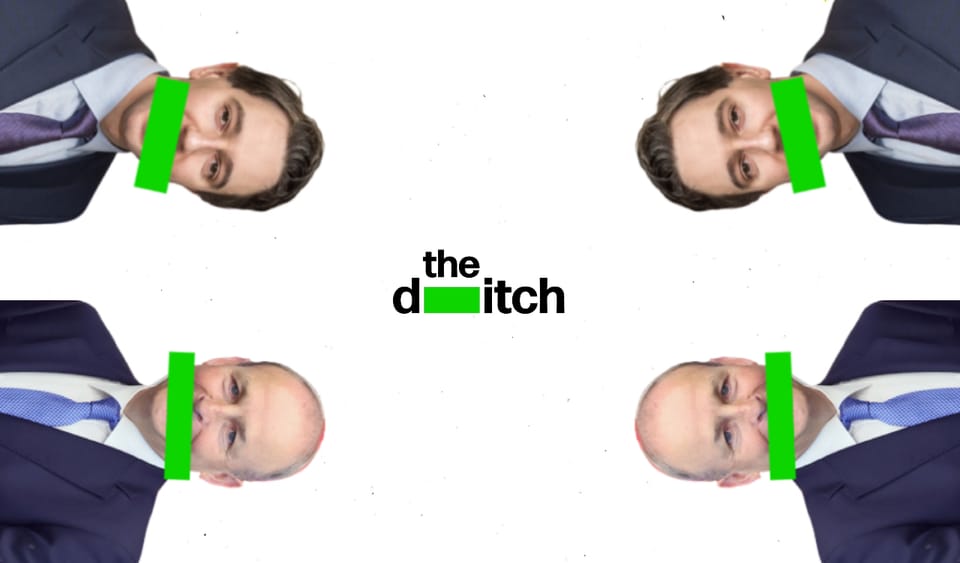Fine Gael tells us it’s found "a new energy".
Unintended as a threat, it's hard not to interpret it as one. After nearly 14 years of Blueshirt rule – and a century of alternating Fine Gael, Fianna Fáil and their forebears-led governments, often supported by hapless coalition partners – this country doesn't need any of their energy directed towards preserving the status quo. In their Ireland almost 15,000 people are homeless, rents have hit record highs and 41 percent of parents say they have skipped meals or reduced portion sizes so their children would have enough to eat. Emergency departments overflow with patients on trolleys or in chairs, some dying because of delayed treatment, while healthcare workers emigrate en masse. Climate targets are treated as trivia, not objectives that will determine the future of human life. And Ireland is complicit in a genocide in Gaza by allowing Israel Defense Forces weapons to unlawfully pass through our airspace.
It would be a good thing if the people responsible for these overlapping crises found their energy reserves exhausted. Maybe that’s happening.
Taoiseach Simon Harris has been meeting his public since dissolving the Dáil earlier this month. He’s walked away from a care worker who criticised him for his lack of support. Fine Gael staffers contacted RTÉ to try to influence how the footage of the interaction was used. Harris refused to deny his team tried to suggest the worker is a Sinn Féin member. Exposure to voters has damaged Harris and his party. Voters have seen his profound sense of entitlement, rudeness and lack of empathy for those suffering because of his government’s policies.
Whatever you think about Mary Lou McDonald – and I have criticised her and Sinn Féin more than once – she would not, when faced with a distressed care worker, turn her back. Her humanity, the simple fact that she comes across as someone who cares about others, has set her apart from Simon Harris and the Most Decent Man in Ireland, Micheál Martin.
Polling indicates a minor fallout from Fine Gael's catastrophic campaign in recent weeks. The latest Sunday Independent/Ireland Thinks poll has Fine Gael's support dropping four points to 22 percent, while Sinn Féin rose two points to 20 percent and Fianna Fáil stayed at the same figure.
But these numbers signal something more significant than Simon Harris leaving a trail of slime as he marauded Ireland in search of votes. The political dominance Fine Gael and Fianna Fáil have maintained since the state's foundation is eroding. In the November 1982 election, they commanded 81.8 percent of the vote between them. By 2007 their combined support dropped to 68 percent. In the 2020 election the pair managed just 43 percent of the vote and were forced into coalition with each other – finally admitting their century of supposed rivalry was expedient and based on the narcissism of small differences.
Fine Gael and Fianna Fáil are de facto the same party, serving the same class interests. And today, as in 2020, voters are closer than ever before to a government without them.
The reality: bleak
A friend, a member of a party running candidates today, said to me recently he couldn't wait for the election to be over so he could go back to doing politics.
He has a point – electoral politics is limited in its ability to deliver fundamental change to how Irish society is organised. But it does have significant consequences and a left government could transform vulnerable people's lives. While organising, unions and community action can be truly transformative, voting offers a way to limit the destruction being wrought on working people across Ireland. The crises we face – with housing, with healthcare, with the cost of living – aren't accidents or policy failures: they're the inevitable outcome of a system that turns human needs into opportunities for profiteering. A government that at least acknowledges this fact would help.
The reality is bleak. Research from Tasc shows Ireland's inequality is diverging from European norms and moving toward US-style disparities: the top 1 percent of income earners average €373,300 annually while the bottom 90 percent make do with €27,400. Distribution is even worse: the richest 10 percent control between 42 and 58 percent of Ireland's resources, while the bottom half of society holds just 12 percent. Workers' share of national income has dropped from 65 percent in 1990 to less than 56 percent in 2009.
Ten minutes on Daft.ie is enough to radicalise the most cold-hearted, Atlas Shrugged-reading objectivist. Ireland’s economy caters to the ultra-rich – government has so tailor-made legislation for big business and property developers that its own attorney general has told it not to be so blatant about it. When the comprador Irish political class boasts about "the fastest growing economy in Europe," they're talking about profits for a small group of people.
What do Fine Gael, Fianna Fáil and the Green Party have to say about this? Very little. Their pitch to the electorate has not been a pledge to redistribute wealth or invest in social services and infrastructure with the enormous financial windfall currently in the possession of the state – it’s been an attempt to bribe voters with one-off payments of their own money.
This is what it means to have “a new energy.”
An actual alternative, please
Sinn Féin's encouragement of voters to transfer left to the Social Democrats and People Before Profit is a welcome step, a recognition that Ireland needs a left government free from Fianna Fáil and Fine Gael. But to offer a genuine alternative, it must rule out coalition with either establishment party. The consequences of junior partnership are well-documented: Labour decimated after backing austerity; the Greens first annihilated after the bank bailout and now facing another potential wipeout after almost five years of doing little more than opening some bike lanes.
A Sinn Féin-Fianna Fáil coalition will have the same result, diluting the former’s progressive policies until they become unrecognisable, alienating the people who voted for them in the hope of a fairer society. Sinn Féin – without which any left government is impossible after this election – needs other left parties not just as coalition partners, but as a counterweight pushing it towards socialist policies rather than the unfortunate compromises it’s made since winning the popular vote in 2020.
The economy can work in the interests of the public. When services are run for profit, when the distribution of resources is subject to market forces, the state is just a facilitator for private interests, a mechanism for transferring public wealth into private hands. An even slightly progressive government could begin to remedy this by challenging the assumption that almost everything must be treated as a commodity that generates profit
For more than a century now, we've been told there's no other way to run this country – that Fianna Fáil or Fine Gael were the only "realistic" choices, that their vision of Ireland is the only possible one. But it doesn’t have to be this way. Another Ireland is possible.
A left government is the first step toward achieving it.


